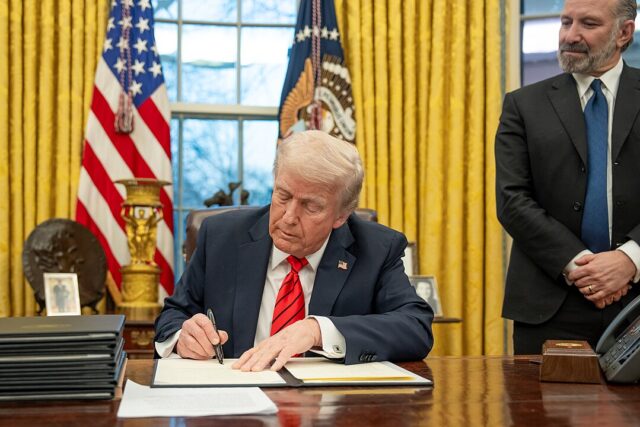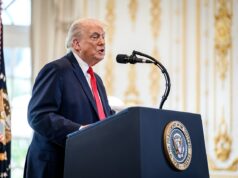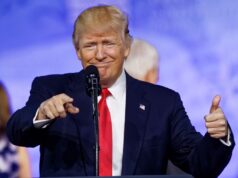
President Trump signed an executive order Thursday that would strip funds from NPR and PBS.
“No media outlet has a constitutional right to taxpayer subsidies, and the Government is entitled to determine which categories of activities to subsidize,” Trump wrote in the order, instructing the Corporation for Public Broadcasting (CPB) to cease indirect and direct federal funding for the two outlets.
The president has accused both organizations of projecting biased viewpoints to the public.
“Which viewpoints NPR and PBS promote does not matter. What does matter is that neither entity presents a fair, accurate, or unbiased portrayal of current events to tax paying citizens,” he wrote in the order.
NPR receives about 1 percent of its funding directly from the federal government, while its 246 member institutions — operating more than 1,300 stations — receive on average 8 percent to 10 percent of their funding from CPB, according to the outlet.
“The big impact would be on rural stations, stations in geographies that are quite large or complex in order to be able to receive broadcast or infrastructure, costs are very high,” NPR CEO Katherine Maher said in an interview on the network earlier this month.
“You could see some of those stations really having to cut back services or potentially going away altogether,” she added.
Her counterpart echoed those concerns.
“There’s nothing more American than PBS, and our work is only possible because of the bipartisan support we have always received from Congress,” PBS CEO Paula Kerger said in a statement. “This public-private partnership allows us to help prepare millions of children for success in school and in life and also supports enriching and inspiring programs of the highest quality.”
Trump’s executive order comes weeks after the administration attempted to dismantle Voice of America and affiliated news services. A federal judge blocked the effort.
It’s unclear whether PBS or NPR will file a lawsuit over potential funding cuts ordered by the president, however, both entities say the public is in dire need of their services.
“About 20 percent of Americans live in an area without any other local news coverage other than their local public radio station,” Maher said.




